Business
Japan hikes interest rate — first time in 17 years
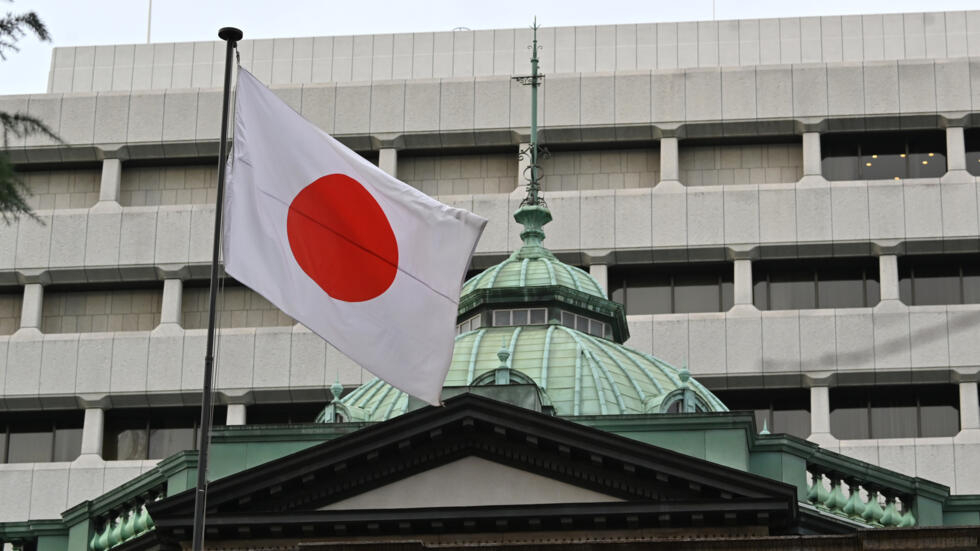
Japan’s central bank raised its interest rate from -0.1 percent to a range of zero to 0.1 percent.
This is the first time in 17 years (2007) the cost of borrowing would go up in Japan.
The development followed the drop in Japan’s inflation to 2 percent in January as predicted by the Bank of Japan (BOJ).
In a statement on Tuesday, BOJ said it increased its key interest rate due to a surge in salaries after consumer prices rose.
In 2016, the bank cut the rate below zero in an attempt to stimulate the country’s stagnating economy.
The hike makes the BOJ the last central bank to exit negative rates.
When negative rates are in force, people have to pay to deposit money in a bank.
The BOJ also abandoned a policy known as yield curve control (YCC), which saw it buying Japanese government bonds (JGB) to control interest rates.
Central banks use yield curve control as a monetary policy tool to control interest rates of government bonds.
YCC policy has been in place since 2016 but has been criticised for distorting markets by keeping long-term interest rates from rising.
Bank of Japan said it will continue the purchases of JGB with “broadly the same amount as before”.
“In case of a rapid rise in long-term interest rates, it will make nimble responses by, for example, increasing the amount of JGB purchases and conducting fixed-rate purchase operations of JGBs — both of which can be done so regardless of the monthly schedule of JGB purchases,” BOJ said.
Meanwhile, on February 15, Japan, the third largest economy, unexpectedly slipped into a recession.
According to a report submitted by Japan’s cabinet office, the country’s gross domestic product (GDP) shrunk at an annual pace of 0.4 percent in the fourth quarter (Q4) of 2023.
The report showed households and businesses cut spending for a third straight quarter.
All domestic demand was particularly weak, while external demand, which is captured by exports of goods and services, made a positive contribution.
Also, the Japanese Yen dropped to its lowest level against the United States dollar on February 14 – the first time in more than 33 years.
The Yen tumbled 6.6 percent against the US dollar since the start of 2024.
Business
Naira declines to N1,450/$ at parallel market
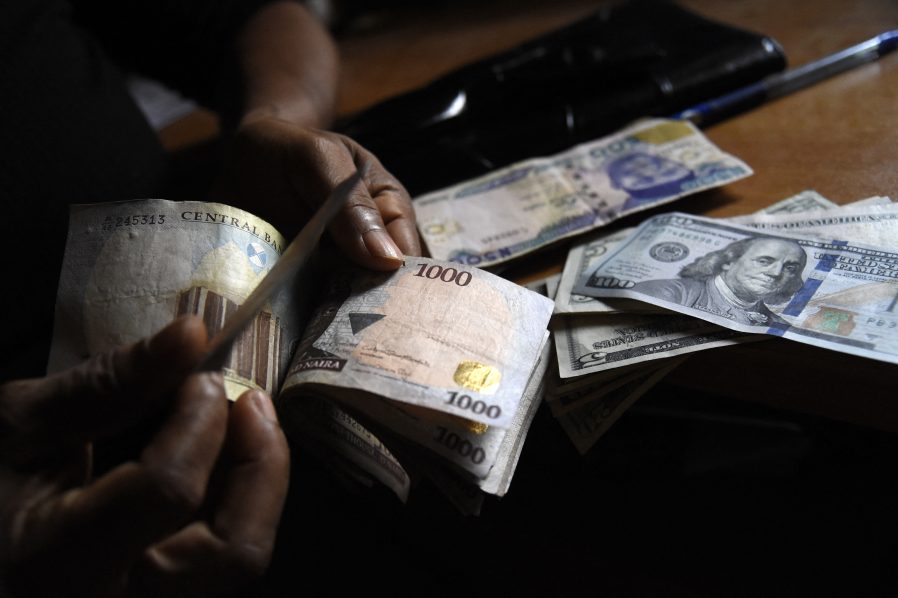
The naira declined to N1,450 at the parallel section of the foreign exchange (FX) market on Wednesday.
The current FX rate represents a 1.4 percent depreciation from the N1,430 traded on May 6.
Currency traders, also known as bureau de change (BDC) operators, put the buying rate of the greenback at N1,410 and the selling price at N1,450 — leaving a profit margin of N40.
At the official window, the local currency depreciated by 1.98 percent to N1,421.06 on May 8 — from N1,416.57 on May 7.
During trading, the dollar recorded a high of N1,440 and a low of N1,335, according to data from FMDQ Exchange, a platform that oversees FX trading in Nigeria.
On May 7, the Central Bank of Nigeria (CBN reviewed its directive on the repatriation of export proceeds by international oil companies (IOCs).
Earlier in February, the regulator had placed limits on the transfer of proceeds from crude exports by IOCs to offshore parent company accounts as part of reforms to curb the volatility in the FX market.
The CBN had said the transfer of funds by the IOCs has an impact on liquidity in the domestic FX market, hence the need for the measures to reverse the trend.
“The initial 50% of the repatriated proceeds can be pooled immediately or as at when required. Banks may submit the request for cash pooling ahead of the expected date of receipt, supported by the required documentations, for approval by the Central Bank of Nigeria,” the CBN said, announcing the policy review.
“The 50% balance of the repatriated export proceeds could be used to settle financial obligations in Nigeria, whenever required, during the prescribed 90-day period.”
The apex bank said the IOCs can also utilise the balance for cash calls, domestic loan principal and interest payments, transaction taxes (including Nigerian Content Development (NCD) levy, education tax, and forex sale at the FX market.
Business
CBN extends suspension of processing fees on large cash deposits to September 2024
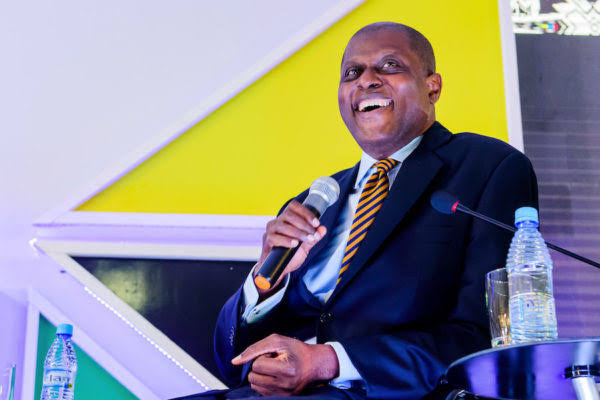
In a notable policy update, the Central Bank of Nigeria (CBN) has extended the suspension of processing fees on significant cash deposits until September 30, 2024.
This decision impacts cash deposits exceeding ₦500,000 for individuals and ₦3,000,000 for corporations, which were initially subject to fees of 2% and 3% respectively.
The extension, outlined in a letter from the CBN’s Acting Director of Banking Supervision, Dr. Adetona S. Adedeji, dated May 6, 2024, follows a previous directive that had temporarily halted these charges.
The initial suspension, as reported by Nairametrics on December 11, 2023, was a relief to depositors handling large sums, aiming to promote financial inclusion and ease the burden on large transactions.
Nairametrics reported that banks were poised to resume processing charges as the initial suspension period neared its end.
However, the CBN’s latest directive extends this relief, ensuring that depositors will not incur additional costs when making substantial cash deposits for an extended period.
The directive read in part
“The Central Bank of Nigeria (CBN) hereby extends the suspension of the processing fees of 2% and 3% previously charged on all cash deposits above these thresholds until September 30, 2024.
Consequently, all financial institutions regulated by the CBN should continue to accept all cash deposits from the public without any charges until September 30, 2024.”
Business
‘7 international, 15 national’ — CBN updates list of licenced banks

The Central Bank of Nigeria (CBN) has updated the list of deposit money banks operating in the country.
This was disclosed in a circular published on May 7 on its website and titled ‘List of Deposit Money Banks and Other Financial Institutions as of 26th April 2024’.
Newsmen observed the number of deposit money banks moved from 34 in 2020 to 44 in the latest list.
Also, the CBN disclosed Union Bank‘s licence was downgraded from international to national.
Globus Bank, Premium Trust Bank, and Optimus Bank upgraded their licence to the national category.
A further breakdown of the latest list of DMBs by the CBN shows seven banks are under the commercial banking category with international licences, 15 banks with commercial banking licences are under the national category, and four are authorised for regional operations.
Also on the list are four non-interest banks with national licences and six banks with merchant banking licences with national authorisation.
CBN disclosed Nigeria has seven financial holdings companies (HoldCo), while the country has one representative office called the Mauritius Commercial Bank Representative Office (Nigeria) Limited.
Full list of banks and their categories
International Lenders
- Zenith Bank
- Guaranty Trust Bank
- First City Monument Bank (FCMB )
- Access Bank
- United Bank of Africa (UBA)
- Fidelity Bank
- First Bank of Nigeria (FBN)
National Licenced
- Citibank Nigeria
- Ecobank Nigeria
- Heritage Bank
- Globus Bank
- Keystone Bank
- Polaris Bank
- Stanbic IBTC Bank
- Standard Chartered Bank
- Sterling Bank
- Titan Trust Bank
- Union Bank
- Unity Bank
- Wema Bank
- Premium Trust Bank
- Optimus Bank
Regional Licenced
- Providus Bank
- Parallax Bank
- Suntrust Bank
- Signature Bank
Non-Interest Lenders
- Jaiz Bank
- Taj Bank
- Lotus Bank
- Alternative Bank
Merchant Licenced
- Coronation Merchant Bank
- FBN Merchant Bank
- FSDH Merchant Bank
- Greenwich Merchant Bank
- Nova Merchant Bank
- Rand Merchant Bank
Financial Holding Companies
- Access Holdings
- FBN Holdings
- Guaranty Trust Holdings
- FCMB Holdings
- FSDH Holdings
- Stanbic IBTC Holdings
- Sterling Financial Holdings
Representative Office
- The Mauritius Commercial Bank Representative Office (Nigeria) Limited.
On March 29, CBN announced an upward review of the minimum capital requirements for commercial, merchant and non-interest banks.
The apex bank said the increase was necessary due to prevailing macroeconomic challenges and headwinds occasioned by external and domestic shocks.
CBN advised banks unable to meet the required capital base to downgrade their licence.
-

 Crime1 week ago
Crime1 week agoUK-based Nigerian doctor, Tijion Esho loses licences over sex for free Botox injections
-

 Entertainment2 days ago
Entertainment2 days agoKanayo introduces first son to filmmaking (Video)
-

 Business2 days ago
Business2 days agoNERC reduces FX rate for calculating new tariff for Band A customers by 16.03%
-
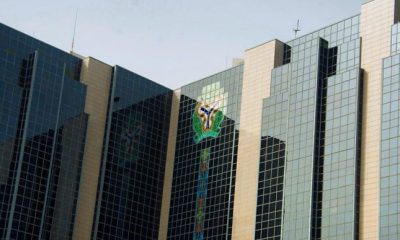
 Business2 days ago
Business2 days agoCBN directs banks to charge 0.5% cybersecurity levy on electronic transfer
-

 Business2 days ago
Business2 days agoNaira depreciates at parallel market, appreciates at official window
-

 Crime2 days ago
Crime2 days agoNigerian vendor in UK, Musiliu Badejo jailed for selling toxic skin bleaching products
-
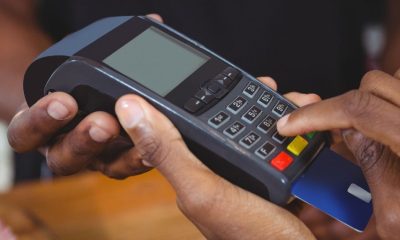
 Business2 days ago
Business2 days agoFive levies Nigerians pay for electronic transactions
-

 Entertainment2 days ago
Entertainment2 days agoPortable acquires luxury house in Lekki (Video)


















